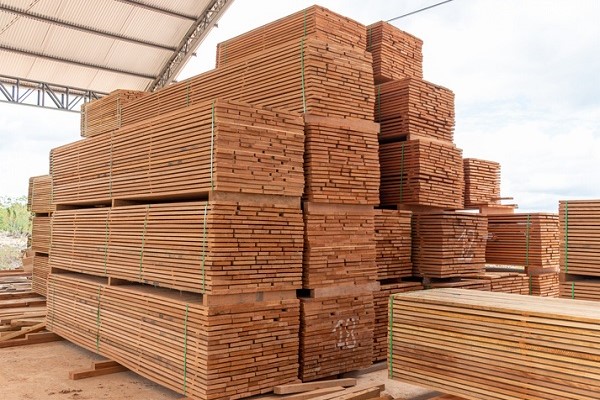Importing Timber into Australia: More than just Wood

Timber might seem like a straightforward material to import - but in Australia, it comes with a host of rules and regulations. These can quickly turn your customs clearance into a compliance headache if you're not prepared!
Whether you're a business importing prefabricated wood products, or an individual bringing in a handcrafted souvenir from overseas, understanding how timber imports are regulated is essential. At Australian Customs Clearance, we help simplify the process, so you can navigate it with confidence.
What Counts as Timber Products when Importing?
When people think of “timber imports”, they usually picture planks of wood or furniture. But timber products cover a surprisingly broad range - from photo frames and kitchen cupboards to packaging crates, bamboo mats, and even musical instruments. A recent client of ours, for example, imported a handcrafted Japanese wooden sword - something completely legal, but still subject to biosecurity checks.
Even paper, cardboard, and antique furniture can fall under the regulations. And while antiques over 100 years old may be exempt from customs duties, biosecurity rules still apply.
Biosecurity First: Protecting Australia’s Borders
Australia has some of the strictest biosecurity measures in the world to protect its unique environment. Timber, by nature, can carry pests, fungi, or diseases that pose a serious threat to our ecosystems and agriculture.
The Department of Agriculture, Fisheries and Forestry (DAFF) uses the Biosecurity Import Conditions (BICON) system to determine if and how timber products can be imported. Many items must be treated by approved providers before arrival - using heat, fumigation, or other methods - to meet the standards.
Further, wooden packaging materials – like pallets, crating, and cases - must comply with ISPM 15 regulations, which require international treatment and marking to reduce pest risk.
When importing timber into Australia, it is your responsibility for ensuring the products meet the required importing conditions. Failure to do so may result in costly delays, re-exportation, or even destruction of goods at your own expense.
Updates to Illegal Logging Act
Beyond biosecurity, importers must also comply with Australia’s Illegal Logging Prohibition Act 2012. With an estimated 10% of global timber linked to illegal activity - including deforestation, environmental harm and links to organised crime - Australia takes this issue seriously.
While a declaration regarding illegal logging is no longer needed for Customs Clearance, importers are still required to undertake due diligence - gathering and keeping evidence that the timber has been legally harvested, and a thorough risk assessment conducted.
Even individuals bringing timber in as part of personal effects may be asked to prove the legality and treatment of their item, depending on its nature and origin.
Commercial vs Personal Timber Imports
Both commercial and personal use timber imports are subject to compliance.
Businesses importing timber into Australia for commercial reasons need to have robust due diligence systems and risk mitigation plans in place.
Personal importers should consider the following:
- All wooden and bamboo items are regulated - regardless of how they're brought into Australia (luggage, mail, or sea or air freight). Check BICON first to identify specific rules.
- Items must be clean and pest-free - No bark, soil, insects, sawdust, or holes (which could indicate pest infestation).
- Declaration is required - You must declare wooden/bamboo articles to a biosecurity officer:
- In luggage: declare on your incoming passenger card.
- By mail/courier: ensure clear and accurate labelling.
- By freight: provide a detailed packing list (eg specify "wooden statue" instead of just "souvenir").
- Border inspection is likely - Items will be checked upon arrival, so it’s not worth taking a risk.
- Freight imports require booking - Personal goods sent as freight must have inspections booked and are subject to additional inspection fees.
We’re Here to Help
At Australian Customs Clearance, we support businesses and individuals through the entire timber import process. With over 15 years’ experience, we know how to keep your shipment moving and your compliance rock solid.
Need help importing timber products into Australia? Contact us on 1300 287 257.







